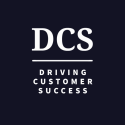12 metrics to measure the effectiveness of your company’s customer relations

As a business owner, you want every interaction customers or clients have with your business to be a positive one. While most successful businesses develop policies and procedures to try to ensure stellar service, building outstanding customer relations doesn’t stop there. Leaders can’t simply assume that the services and support they’ve developed are exceeding customer expectations. To know for sure, you have to go straight to the horse’s mouth—you have to not only listen to what your customers say to and about you but also track to see if they continue to choose your business in the future.
While you may not be able to ask each of your customers personally for their opinion of your company, there are metrics you can monitor to ensure you’re on the right track when it comes to offering outstanding customer service. Below, 12 leaders from Fast Company Executive Board share the metrics their organizations track to help them develop long-lasting relationships and a strong community of fans around their brand.
1. CUSTOMER REFERRALS
It’s one thing for a customer to say they’re happy and would recommend you to others—it’s another thing for them to actually do it. We launched a referral program for our customers that incentivizes them to recommend other companies that might be a good fit. You can quickly identify who your biggest champions are by their willingness to go out of their way to make stellar recommendations. – Melanie Fellay, Spekit
2. CUSTOMER RELATIONSHIP SCORES
Relationships include intangible qualities. To measure those, each week our team gives each customer a relationship score that’s graded A, B, or C. This allows us to collectively agree on how the relationship is going and lets any problems rise to the surface. If something happens that makes the relationship rocky, we discuss how we can change, reconnect, and over-deliver for the client. – Monica Landers, StoryFit
3. NET PROMOTER SCORE
The Net Promoter Score can serve as a compass showing how well your customers love your brand. By asking, “On a scale from 1 to 10, how likely are you to recommend us to someone you know?” you can identify your promoters, passives, and detractors. This will help shape future improvements that can allow you to not only build great relationships with your clients but also have them become your ambassadors. – Andreea Vanacker, SPARKX5
4. FIRST CONTACT RESOLUTION RATE
While high-level KPIs like the Net Promoter Score can give us a picture of larger trends, I love digging into the details for insights. The First Contact Resolution Rate can be the gateway to a wealth of ideas. It allows us to quickly identify emerging challenges or process roadblocks that are holding our team back. It doesn’t just gauge our overall performance—it also helps us find new ideas and solutions to improve our outcomes. – Chris Denny, The Engine is Red
5. PERCENTAGE USES OF OUR PRODUCT
We measure the percentage of our clients’ sales demo operations that are being run through our service. For instance, if a client runs 1,000 sales demos a month through our platform, we look to see if it was 1,000 out of 1,500 or 1,000 out of 5,000. That’s a big difference for us. It helps us to make sure we offer much more than a “nice to have” tool. – Yoav Vilner, Walnut
6. CUSTOMER HEALTH SCORE
Monitoring a rigorous Customer Health Score is a great strategy for achieving customer success. The score indicates if the client is using the product, how deeply, and how often. If numbers are low, the client is not finding enough value and the account is at risk. The CHS also reveals the features the client spends the most time with, which is key data for product development and upsells. – Ximena Hartsock, Phone2Action
7. CUSTOMER RELATIONSHIP SPEND
Ask yourself this question: “How much did we spend to strengthen our customer relationships?” Often there is the sense that offering sincere words and attentive feedback can be enough. While these are important, the reality is that great customer relations require meaningful levels of investment. Absent that, the engagement might well be very good, but it is worth asking whether it is truly great. – Joe Watson
8. CUSTOMER HAPPINESS SCORES
We track Customer Happiness Scores to understand whether our products help users achieve their business goals. The Customer Happiness Score collects data in real time through direct feedback and by looking at reviews and other content. It also integrates with our helpdesk software and makes it easy for us to track and understand what’s working and what isn’t. – Syed Balkhi, WPBeginner
9. SOCIAL MEDIA INTERACTIONS
Look at how customers are interacting with your brand on social media. Are they commenting and sharing your content? It is important to share content that is relevant to your brand and to be selective about the trends that you post about. Also, don’t try to sell, sell, sell. Social media should be a place to build valuable customer relationships, not a cluster of links to your product pages. – Kelley Higney, Bug Bite Thing
10. REPEAT BUSINESS
Repeat business and referred business are the best metrics I know of to measure customer satisfaction. Clients who start one small project with us and then continue to turn to us (as well as refer other business units within their organizations), as well as leaders who call on us for new projects when they’ve moved to new organizations, are the real testaments to our customer relationships. – Jason Cottrell, Myplanet
11. CUSTOMER CHURN RATE
Customer success today is all about providing value and building genuine relationships, so I would recommend paying attention to customer churn rate. When your sales reps maintain a strong and healthy connection with customers and your customers are willing to do business with you for a long time, it’s a sure sign that you are doing something right. – Solomon Thimothy, OneIMS
12. CUSTOMERS’ REPORTED EXPERIENCE
We conclude every project with a client debrief. This allows us to ask very intentional questions aligned with our key customer experience measurable, which we call “S.A.U.C.E.” (Seek to Achieve Unforgettable Customer Experiences). We’ve found this to be a more human touch point than looking at NPS scoring. We even reward internal team members with S.A.U.C.E. patches, highlighting its importance in our organization. – Bill Kenney, Focus Lab

Hakan Ozturk
Founder, theCScafe.com, #1 Weekly Customer Success Newsletter
Hakan Ozturk is a Paris-based Customer Success leader with over 15 years of experience in the computer software industry. Passionate about driving growth and delivering value to strategic customers, Hakan has established himself as a trusted industry expert. As the Founder of The Customer Success Café Newsletter and TopCSjobs.com, Hakan provides valuable industry insights and daily-updated job opportunities worldwide in the field of Customer Success. Connect with Hakan to boost your career in CS and your company’s potential for massive growth.

Leave a Reply